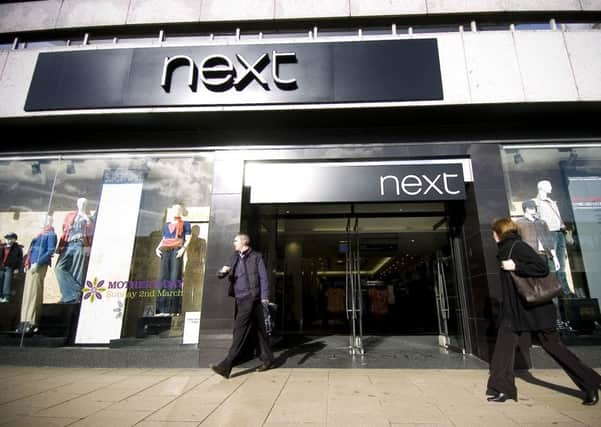Next pledges to limit price hikes as import costs mount


Unveiling a dip in sales, chief executive Lord Wolfson said the group may have to put up price tags next year, but added that any rise was likely to be “less than 5 per cent”.
Next estimated that importing clothes from overseas suppliers will push up costs in the year to the end of January 2018 by up to 5 per cent.
Advertisement
Hide AdAdvertisement
Hide AdThe retail stalwart posted a fall in full-price sales at its high street stores – down 3.3 per cent for its retail outlets in the second quarter to the end of July, while its Next Directory arm saw sales rise 5.7 per cent.
But the figure was not as bad as feared, while a robust end-of-season sale performance also helped limit the fall in total store sales, including markdowns, to 0.7 per cent.
Lord Wolfson, a prominent pro-Brexit voice, said: “We’ve seen evidence of a consumer slowdown since October. The Brexit vote hasn’t really altered consumer confidence one way or the other – the consumer environment was tough before the vote and remains tough.”
George Salmon, equity analyst at Hargreaves Lansdown, said: “So far Next has hardly seen any adverse impact from the referendum, but like many retailers it faces higher costs for the goods it sources from abroad, thanks to the devaluation of sterling.
“The highly competitive market means UK retailers will want to try to push this additional cost back onto their suppliers, or soak it up themselves, but some may yet leak through into prices for consumers.”
Augustin Eden, research analyst at Accendo Markets, described Next’s views on Brexit as “interesting”, adding: “With an established presence in the EU and a reported €200m in revenues, the company could benefit from a stronger euro versus the pound.
“In addition, Next sees a minimal change to its operating costs from Brexit because the company’s stock is already mostly produced outside the EU.”